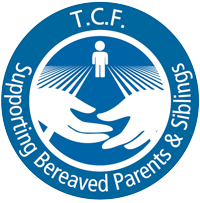
President’s Message
“Those we love deeply, we can never lose – they become a part of who we are”..................Helen Keller
“Those we love deeply, we can never lose – they become a part of who we are”..................Helen Keller
Yesterday saw our fourth annual Walk-to-Remember and I am pleased to report that apart from a little drizzle, the weather held out for us. We had close 100 people participate in the Walk this year from Custom House, around Circular Quay to the beautiful setting of the Maiden Pavilion in the Botanic Gardens. Walking through the throng of people around Circular Quay, people were asked about the significance of the Walk and the meaning of the T-Shirts and perhaps this is what it is all about? Reminding the world of our loved ones and reassuring others in our community, that we will be there for them, if they ever have to face our shared sadness.
Her Excellency Margaret Beazley AC, KC Governor of NSW, kindly came along, shared a few words of support and then spent a further hour engaging with groups around the lawn area, speaking and showing a genuine interest in stories of loved ones. For weeks prior, I had been advised that, “protocol needed to be adhered to”, that “the Governor only had a short time slot to share with a few people”, and yet what transpired was time spent with a wonderful lady, that didn’t look for the trappings of office, but to my mind was a true reflection of someone worthy of the title, “Governor”. It was a wonderful day (despite the PA system failing, which seems to be an annual bête noir!)
No day like yesterday though, just happens. It takes time, effort and resources to achieve such a day – so I am very grateful to all those that volunteered in making the day a success. A full thank you list will appear elsewhere in the magazine.
With the Walk behind us, we now focus on the festive and holiday period, which is rapidly approaching. Such a difficult time for so many of our members, who struggle through this period without their loved ones. Many of the articles and resources in this edition are focused on trying to help create strategies and ideas that might help. I think that in previous editions around this time of year, I have alluded to the fact that Christmas was always a difficult time – as my childhood recollection (when Christmas really is magic), was spent in the colder parts of the UK. Christmas on the beach has always been a difficult concept, even though I like to think of myself as an Aussie. Now there are additional challenges: the challenge to enjoy the family time with the empty seat at the dining table. To avoid playing the games that were once instigated (and usually won) by that one person that is no longer here. To remember the joy that filled the household before that fateful day, to remember the laughter, the sharing, the loving environment – and to hold on to those memories, as each of us struggle on. Such precious memories, such love – that can never be taken away and will never change.
To each and every one of you, I wish you the joy of this time. I pray that you may know peace, that you remember the times shared with your loved one and that you always know that you will never walk alone. We walk together.
Hugs to all
Chris

